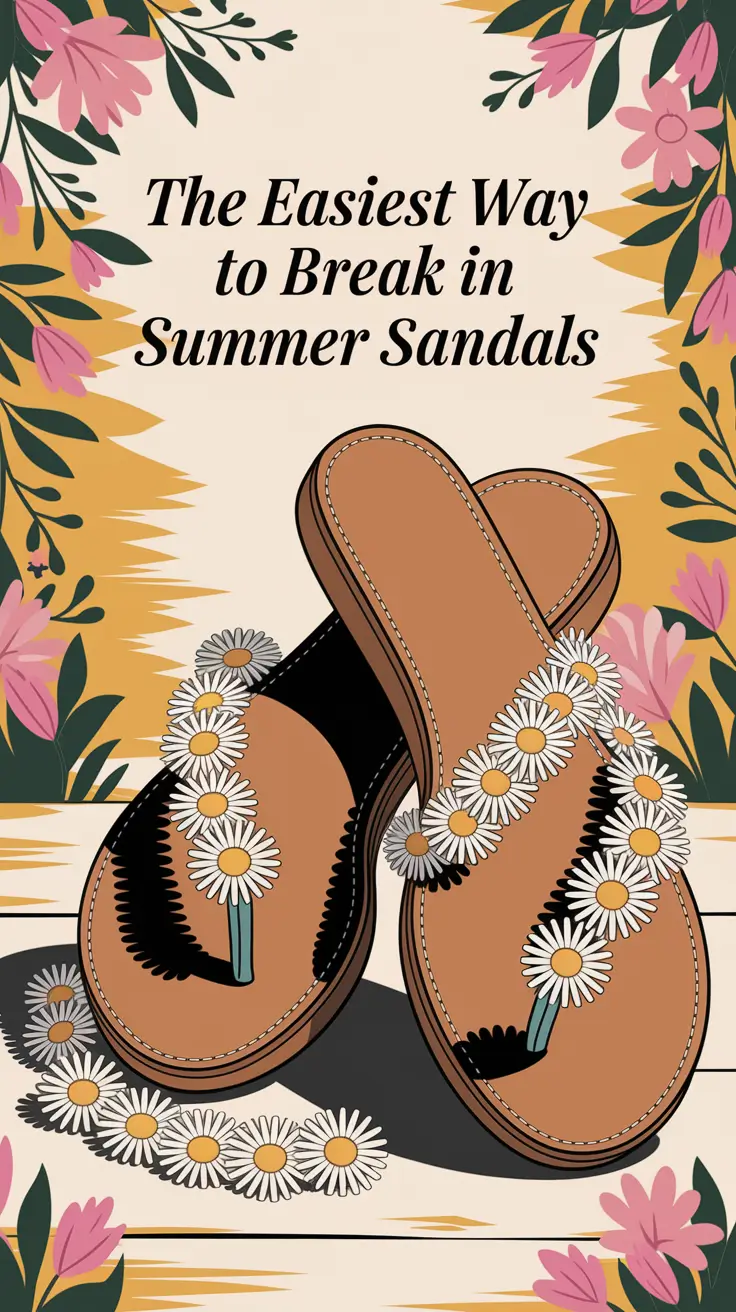
The beautiful summer sandals you just purchased at the store prove to be discomforting against your expectations after wearing them. You’re not alone. Research indicates that summer shoes cause discomfort to 70 percent of individuals when they first start wearing them. The good news? Scientific methods of breaking in summer sandals exist that prevent discomfort along with blister formation and preserve your shoe expenditure.
Read this thorough guide to discover effective techniques for softening rigid straps as well as stretching tight fittings and protecting your feet during acceleration of the break-in procedure. The collection contains sandals suitable for beach outings as well as summertime functions and day-to-day comfort.
Who This Article Is For:
- Anyone who bought a new pair of sandals for the season
- People tired of blisters, red marks, or soreness
- Parents shopping for kids’ summer shoes
- Anyone trying to avoid returning those “almost-perfect” sandals
Why New Sandals Hurt — And How to Avoid It
The reality shows that wearing fresh sandals starts with discomfort, which will ultimately transform into pleasant sensations. But why is that?
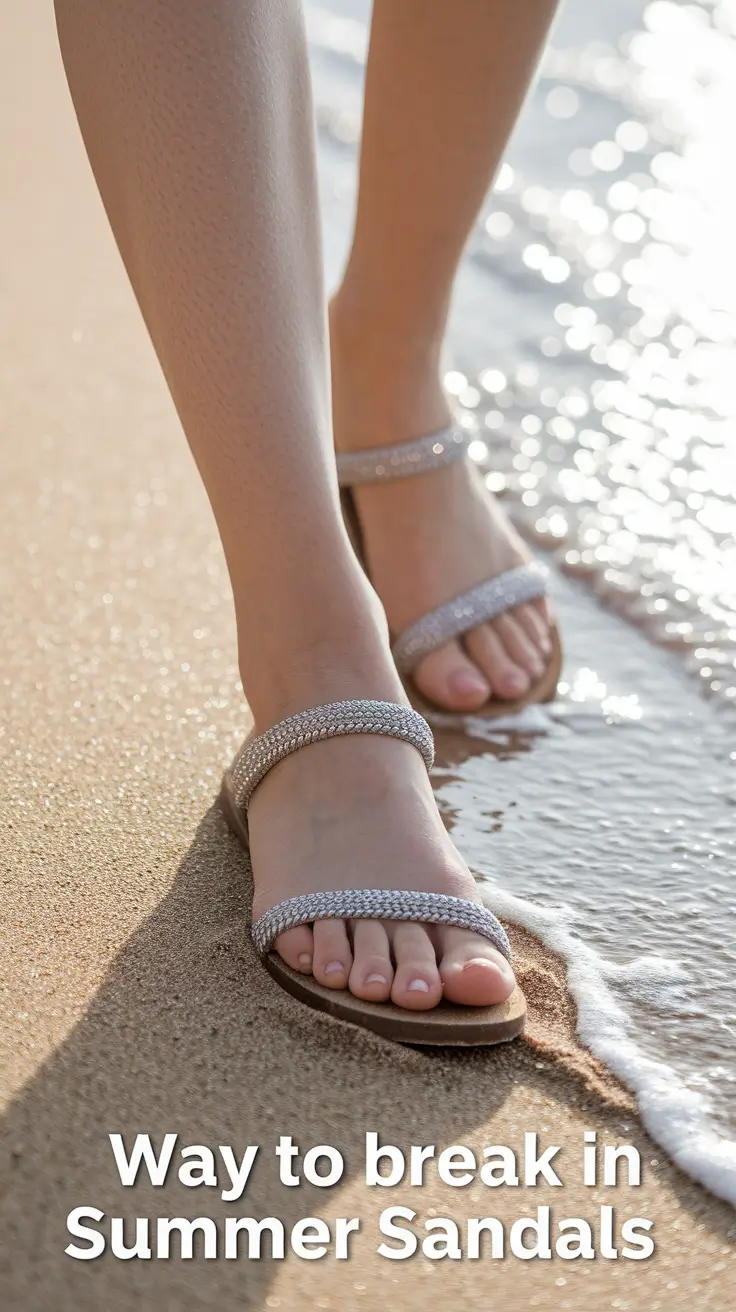
Common Reasons for Sandal Discomfort:
- Stiff materials that haven’t molded to your feet yet
- Poor fit (especially around the toes or heel)
- Flat soles that don’t support your arch
- Straps that rub against skin with every step
The problem primarily affects leather together with faux leather and sturdy materials. Even high-end brands aren’t immune.
Let’s not wait that long.
Prepare Your Sandals for a Smooth Break-In
A small amount of preparation time before wearing your sandals for the first time is necessary.
Step 1: Inspect for Trouble Spots
Check your sandals for areas that look likely to cause rubbing:
- Inner straps (especially around the ankle)
- Toe posts (for flip-flop style sandals)
- Stiff edges near your heel or sides
Take note of these spots for protection either through memory or removable tape.
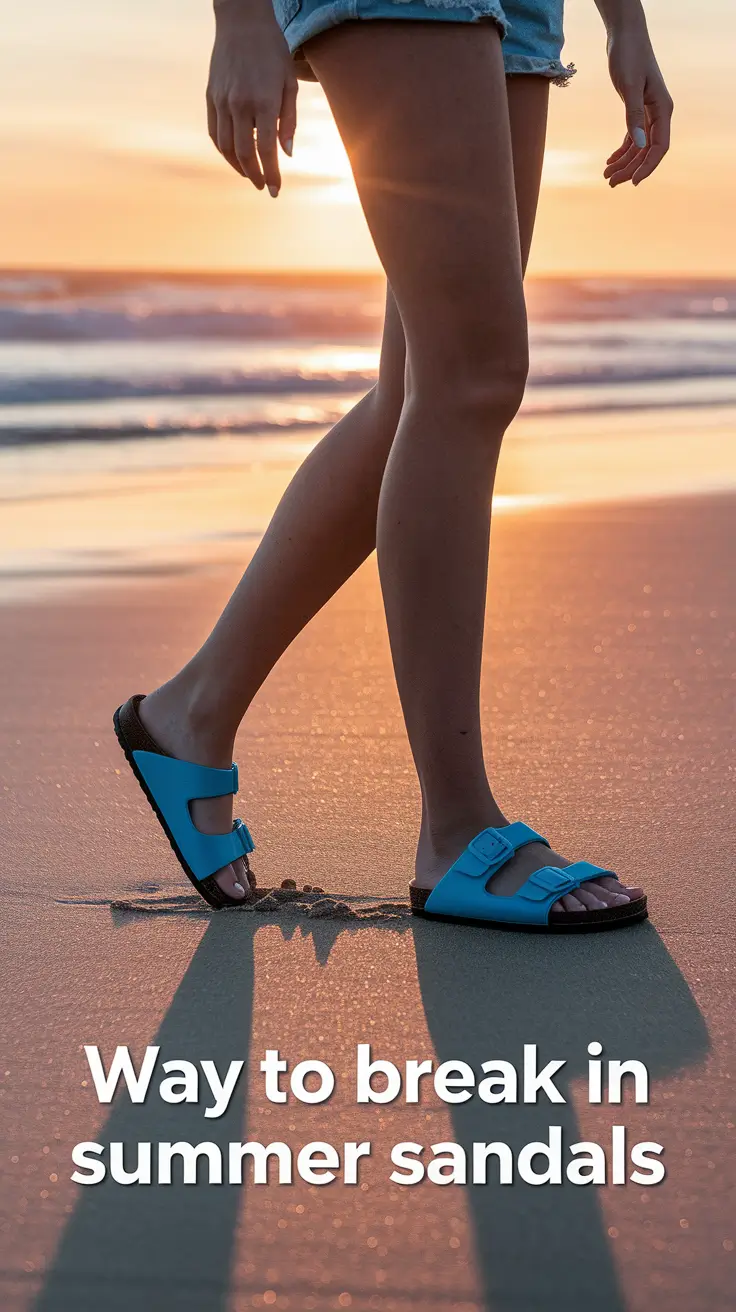
Step 2: Gather Your Break-In Toolkit
Here’s what you’ll need:
| Item | Purpose |
|---|---|
| Thick socks | To add padding + help stretch straps |
| Hairdryer | To gently soften materials |
| Petroleum jelly or moleskin | To reduce friction |
| Leather conditioner | For real leather sandals |
| Foot powder | Keeps feet dry during break-in |
| Band-aids or blister pads | Emergency backup! |
This pocket-sized kit provides essential support to your feet, which creates significant benefits.
The 3 Fastest Ways to Break in Sandals
You have completed your preparation; therefore, it is the right time to introduce your new sandals through proper fitting.
1. The Heat-and-Stretch Method
It is the best method to care for leather-based as well as faux leather footwear.
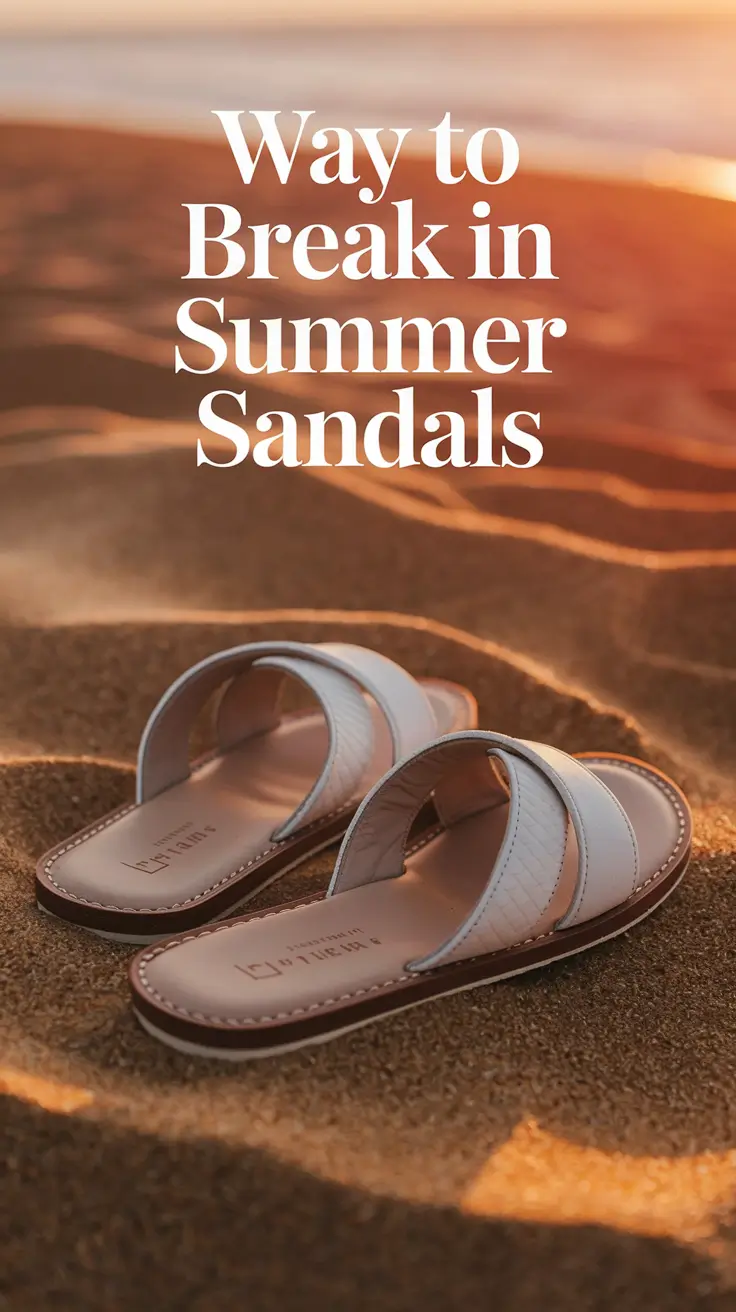
Here’s how it works:
- Put on thick socks.
- Wear your sandals over the socks.
- Use a hairdryer on medium heat for 2-3 minutes, focusing on tight spots.
- Walk around for 10-15 minutes while the material cools.
Repetition of this remedy should be continued for multiple days.
2. The Overnight Stuffing Trick
This choice provides an excellent solution for people who prefer to keep their earpieces private during home use.
How to do it:
- Take newspaper, socks, or a clean towel.
- Dampen slightly (if your sandals are leather).
- Stuff tightly into the footbed and under straps.
- Leave overnight.
Sleep would activate the foam through its gentle pressure points, thus facilitating muscle relaxation during therest period.
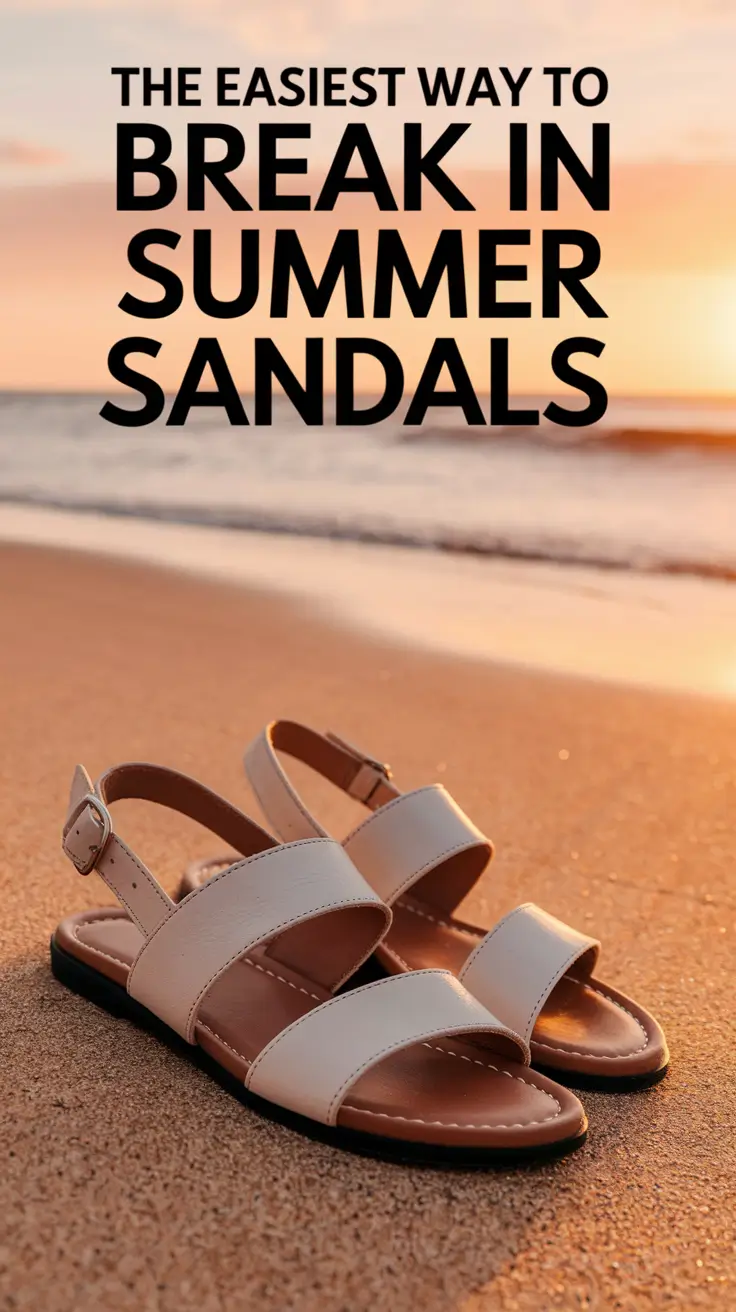
3. The Walk-At-Home Routine
Simple and effective — but with a twist.
Instructions:
- Wear sandals with socks inside the house.
- Start with 15–20 minute intervals.
- Gradually increase time each day.
Consistency is key here. Your sandals and your feet require joint training for this process.
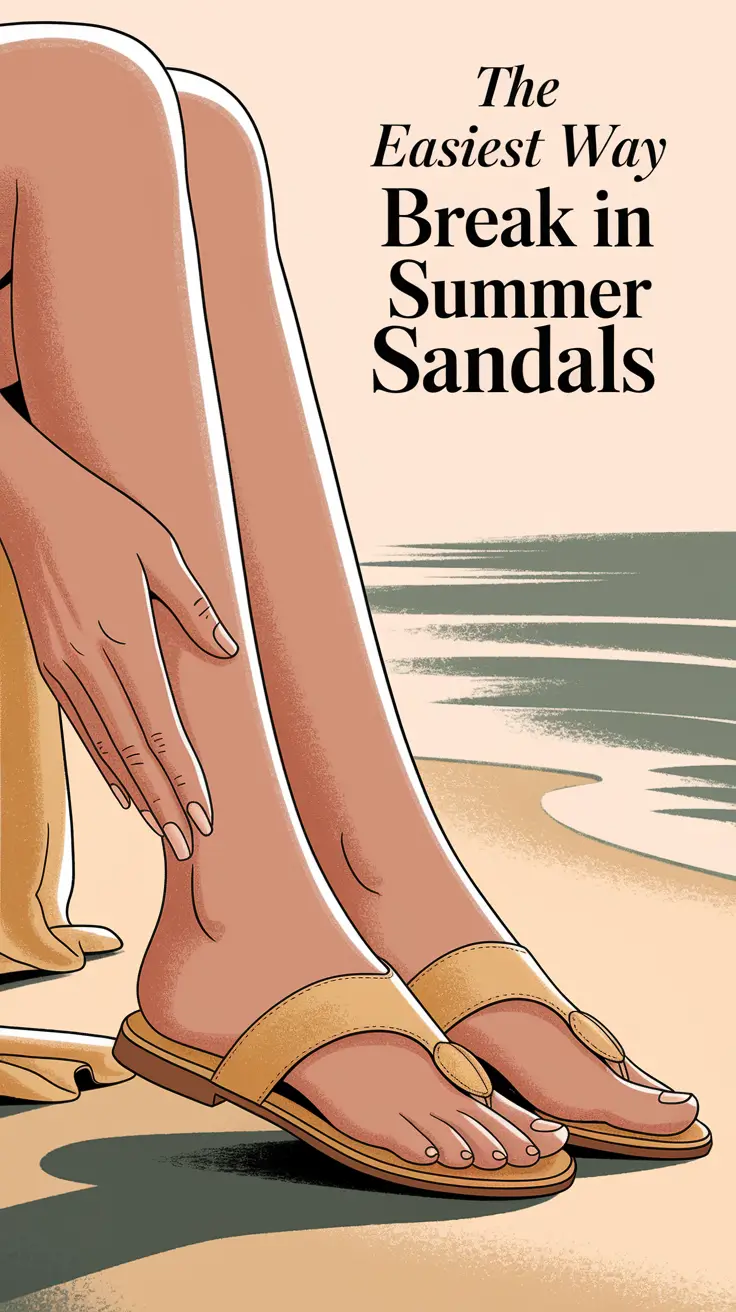
What If They Still Hurt? Here’s What to Do
A few sandals prove difficult to wear when applying professional techniques even though feet require special attention sometimes.
Solutions for Common Problems:
| Problem | Solution |
|---|---|
| Blisters forming | Use blister patches or silicone heel cups |
| Arch pain | Add supportive insoles or gel pads |
| Slipping straps | Try stick-on grip strips or moleskin lining |
| Toe discomfort | Soften straps with conditioner or alcohol spray |
Also, don’t forget your feet:
- Moisturize regularly
- Use anti-chafing balm
- Let your feet rest if soreness continues
Expert Tips to Prevent Future Sandal Pain
Eliminating the break-in procedure will be your goal for the next attempt.
Pro Advice:
- Try sandals in the afternoon, when your feet are naturally a bit swollen
- Test straps for flexibility — stiff = potential pain
- Avoid super flat soles if you need arch support
- Choose sandals with soft linings or padded straps
- Break them in at home before a big event or vacation
Trending in 2025: Comfort Meets Style
More brands are now offering sandals with:
- Memory foam footbeds
- Adjustable straps
- Molded arch supports
- Plant-based, flexible materials
Final Thoughts: Break Them in the Smart Way
Here’s what to remember:
- Most sandals need time to adjust — but it doesn’t have to hurt.
- Use heat, socks, and patience to make the process easier.
- Protect your feet during break-in to avoid blisters.
- Not every sandal is worth the pain —don’t hesitate to return.
What About You?
Is there a break-in technique among these methods you have tested? What worked best for you? Add your break-in experience in the comment section of this post.
You should share this article with anyone who faces difficulties when wearing new sandals. Their feet will thank you!
